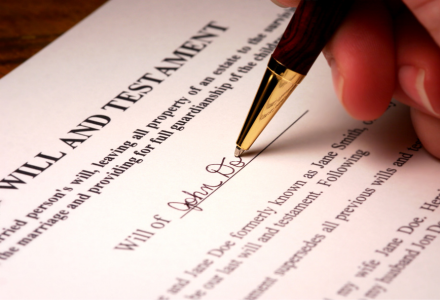- GET ADVICE, CALL US NOW02 9281 5088

Szabo & Associates News & Updates
Can a stepchild contest a will?

In New South Wales, there are avenues under which a stepchild may contest a deceased person's will. Our contesting a Will Solicitors at Szabo & Associates Solicitors can help you understand how the state’s estate planning process affects increasingly common blended families.
Definition of a stepchild
In NSW, a stepchild is defined within the context of family law. According to the Family Law Act 1975, a stepchild is defined as a child of a person’s spouse or former spouse, where the child is not the person’s biological child.
This means that if a person is married to, or was previously married to, someone who has a child from a previous relationship, that child would be considered their stepchild under the law.
Similarly, if a person is in a de facto relationship with someone who has a child from a previous relationship, that child could also be considered their stepchild under certain circumstances outlined in the law.
Understanding Succession Law in NSW
In NSW, the Succession Act 2006 governs the rules surrounding wills, estates, and inheritance. Under this act, certain eligible persons can contest a will if they believe they have adequate provision in the deceased’s estate.
The following individuals may make a family provision claim with the Supreme Court of NSW:
- The deceased’s spouse or former spouse
- A de facto partner
- The deceased’s child
- A person dependent on the deceased
- The deceased’s grandchild
- Someone who lived in the deceased’s household
- A person in a close personal relationship with the deceased
Unless specifically named as a beneficiary in the will, a does not automatically have entitlement to inherit from their stepparent's estate.
However, they may have the right to contest a will if they can demonstrate their whole or partial dependence on the deceased and that they lived in the same household as the deceased at some point.
Factors considered by the Court when a stepchild contests a Will
When determining whether a stepchild has the grounds to contest a will, the court will consider various factors, including:
- The nature and extent of the relationship between the stepchild and the deceased
- Any financial or emotional dependence the stepchild had on the deceased
- Whether the stepchild ever lived in the same household as the deceased
- The size of the estate and the financial needs of the beneficiaries
- Whether the deceased made any promises or assurances to the stepchild regarding inheritance
- Any disability of the stepchild
- The age of the stepchild
- The stepchild's character and conduct before and after their stepparent's death
- Contributions made by the stepchild to the deceased’s estate
Time limit for a stepchild to contest a Will
If the stepchild meets the conditions for contesting a will, they must do so within one year of their stepparent’s death. To ensure the stepchild meets this deadline, they should seek legal advice from our Sydney, NSW will contest lawyers as soon as possible.
Contact our Wills and Estate Lawyers based in Sydney, NSW
If you have questions about your rights as a stepchild after your stepparent's death, contact us today. Please call us on 02 9281 5088 or complete the online contact form. Our will contest team at Szabo & Associates Solicitors can review the details of your relationship with your stepparent to determine whether you may be eligible to contest their will in NSW.
By accepting you will be accessing a service provided by a third-party external to https://szabosolicitors.com.au/
Individual problems require individual solutions
For more information or to book a consultation, call us on
02 9281 5088



